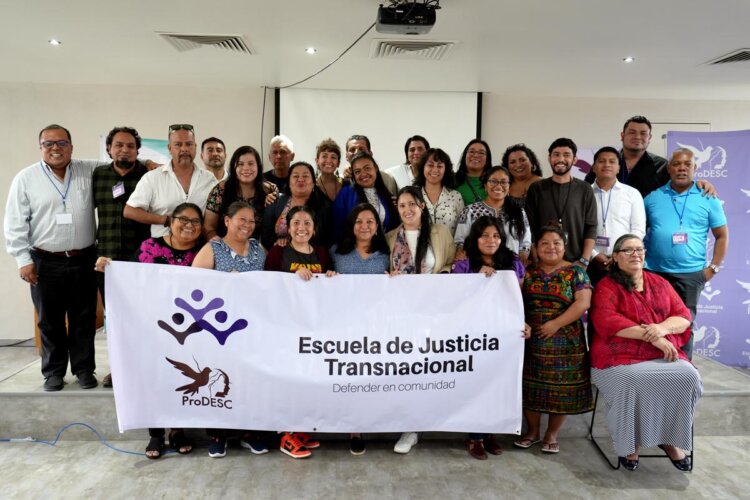02 Oct The EJT graduates the sixth generation of community defender

The most recent generation of community defenders from the School of Transnational Justice (EJT in Spanish) celebrated their graduation ceremony on July 1 in Mexico City. Thirty-three defenders from 13 states of the Mexican Republic and six Latin American countries gathered here, namely: Chile, Colombia, El Salvador, Ecuador, Guatemala and Peru.
This sixth generation constitutes the “largest and most geographically diverse cohort in the history of the School,” said Alejandra Ancheita, executive director of ProDESC, adding that spaces like the EJT: “are fundamental to promoting the construction of alternatives for the defense of ESCR, since they promote collective power and spaces of solidarity between organizations, groups and communities committed to safeguarding a dignified life.”
The 33 graduates in this sixth generation of the EJT went through a six-month training process that covered different tools for the defense of economic, social, and cultural rights, within the framework of transnational justice and the construction of collective and community subjects, all through the comprehensive defense methodology developed by ProDESC.
“Over the past six months, these brilliant and dedicated activists, lawyers, storytellers, advocates, and social leaders […] immersed themselves in the world of economics, social and cultural human rights, addressing complex issues at the intersection of gender, corporate accountability, workers’ rights and the right to land and territory. Throughout this journey, our esteemed faculty and human rights specialists offered them invaluable knowledge, guidance and mentorship, equipping them with the practical skills necessary to implement comprehensive human rights defense strategies in their respective contexts,” commented Gabriel Rocha Belloni, Coordinator of Organizational Processes of ProDESC.
“This process has been extremely valuable since it has given us the opportunity and challenge to expand our reach as a School of Transnational Justice and reach other latitudes in Latin America, which have nourished our reflections on the challenges, opportunities and forms of struggle and enforceability of economic, social and cultural rights,” Ancheita pointed out.
Finally, the executive director invited the graduates to be part of the Network of the School of Transnational Justice in order to weave ties of solidarity between the graduates, their groups and communities, and strengthen efforts in favor of the human rights in Mexico and Latin America.
Is worth remembering that the EJT emerged in 2017, with the support of the Bertha Foundation, and to date it has trained six generations of defenders and has more than 170 graduates.
